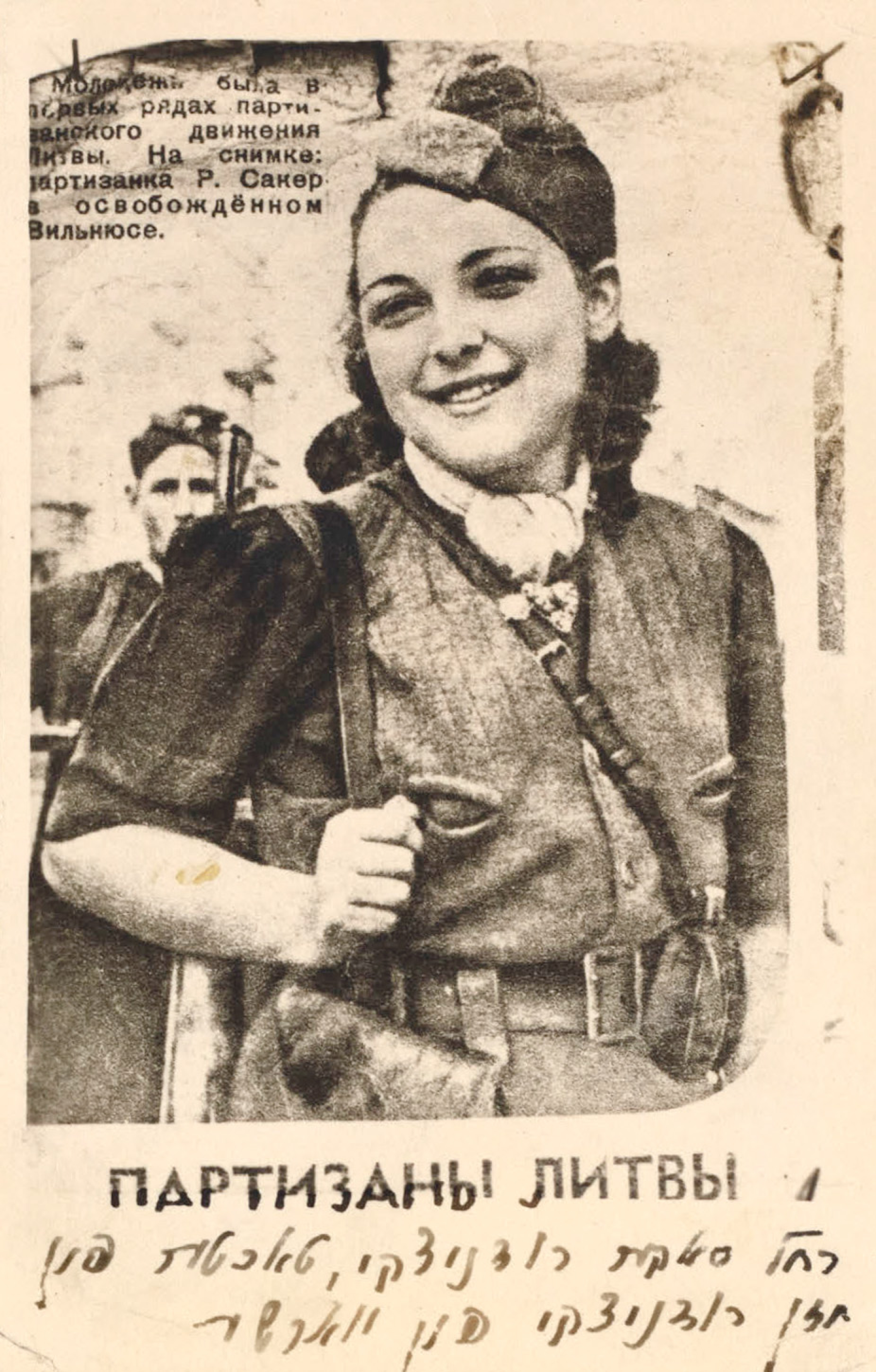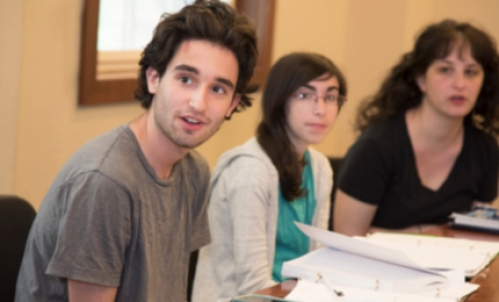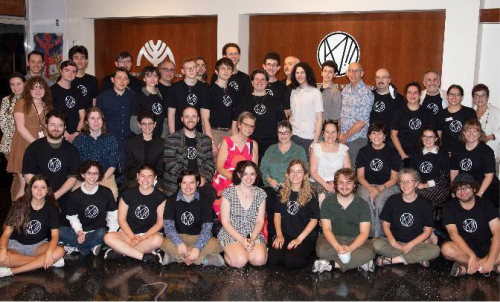Boots, Arms, and Spoons: On the Material Lives of Jewish Partisans in German-occupied Lithuania (1941-1944)

|
Max Weinreich Fellowship Lecture in Baltic Jewish Studies
The Abram and Fannie Gottlieb Immerman and Abraham Nathan and Bertha Daskal Weinstein Memorial Fellowship in Eastern European Jewish Studies, the Abraham and Rachela Melezin Memorial Fellowship and the Maria Salit-Gitelson Tell Memorial Fellowship Admission: Free |
In her memoir “A Partisan in Vilna” (2010), Rachel Margolis, a Jewish partisan from Lithuania, recalls how a pair of warn-out but comfortable boots “saved” her during long marches in the forest. Partisans like Margolis often left memoirs, testimonies, letters, and other materials that enable us to investigate how they manufactured, looted, estheticized, exchanged, or destroyed various objects that allow historians to explore the everyday life in the resistance. Many of such materials are held in the YIVO Archives.
By focusing on the material existence of Jewish partisans in Lithuania, Justina Smalkyté makes the argument that the ways material objects were used to carry out resistance activities and perform violence, tell us much about social relations and ethnic hierarchies in the partisan camps. In this lecture, she examines the social differentiation in the partisan camps based on possession of certain scarce objects such as boots, better food rations, and arms. The ways such objects were gifted, stolen, or distributed among partisans challenges the idea of the comradely cross-ethnic partisan community on which the communist recruitment propaganda was based. She also will address the experiences of cold, hunger, fatigue and injuries that defined partisans’ material lives in the camps and examines the issue that despite such shared experiences, ethnicity and gender remained important differentiating factors in the partisan community.
About the Speaker
Justina Smalkyté is a PhD candidate at the Sciences Po Center for History in Paris where she is preparing a dissertation on anti-Nazi resistance movements in German-occupied Lithuania (1941-1944). She holds a double MA in European History from Université Paris Cité and Humboldt University of Berlin and a BA in History from Vilnius University. Her doctoral research examines resistance through the lens of material culture: while focusing on a wide range of material objects used by anti-Nazi resistance members her thesis attempts to shed a new light on practices of resistance and violence in Lithuania under German occupation.
Her publications include the book chapter “Gender, Ethnicity, and Multidirectional Violence in the Last Months of the German Rule in Lithuania: A Case Study of Local Force Battalions” in Reshaping the Nation: Collective Identities and Post-War Violence in Europe 1944–48 (Palgrave Macmillan Press, 2022), and the forthcoming “Politics of Selective Remembering in Post-1990 Lithuania: A Case study of Lithuanian Post-Fascist Far-Right Mnemonic discourse,” which will appear in the volume Far Right Memory Politics in the Internet Era (Södertörn Academic Studies, Sweden).
Her research has been supported by research grants of the Foundation for the Memory of the Shoah in France, the YIVO Institute for Jewish Research in New York, the Association for the Advancement of Baltic Studies, and the Moshe Mirilashvili Center for Research on the Holocaust in the Soviet Union at Yad Vashem in Israel.

